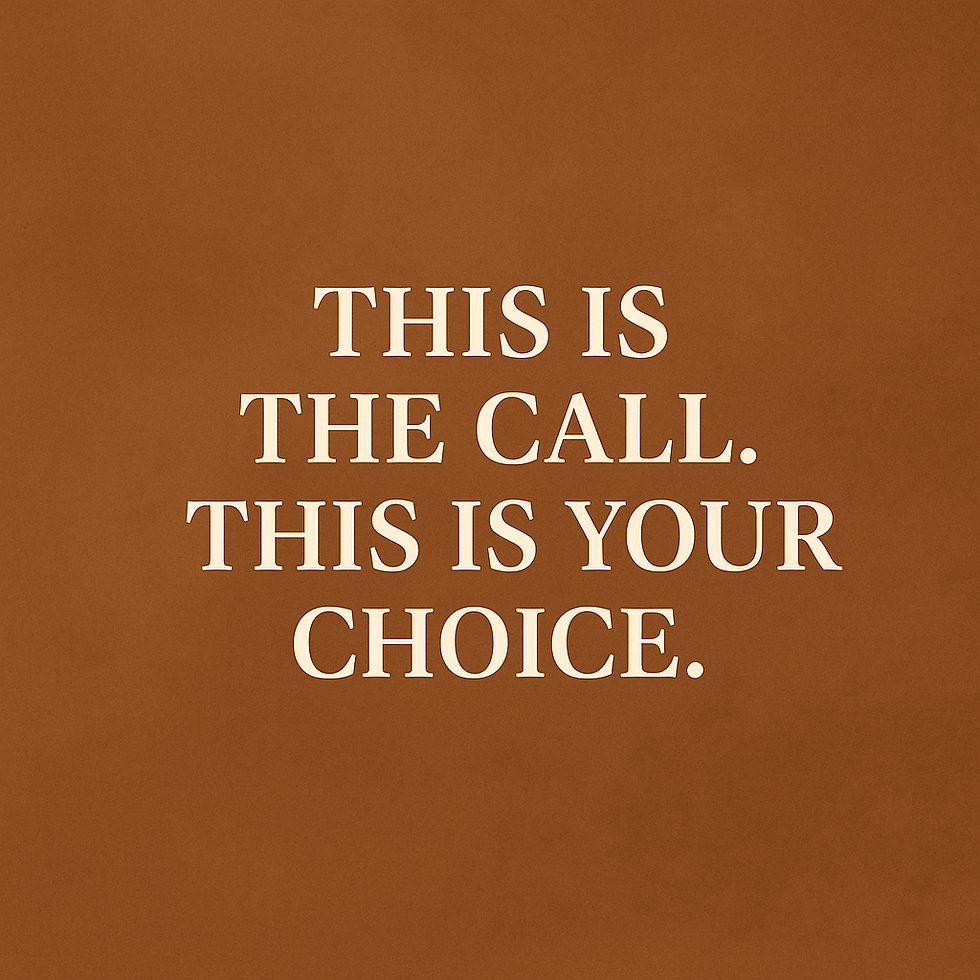Pick Up Your Cross and Follow Me
- stephaniearje
- Oct 10, 2025
- 3 min read

“Pick up your cross and follow Me.” It’s a phrase we are so familiar with. So familiar, in fact, that I have to ask—has it lost its power?
Have we, as the Body of Messiah, forgotten what those words truly mean?
These days, I’ve been sensing a lack—something missing in our collective character. I can’t quite put my finger on it, but the symptoms are everywhere. So I’ve been asking the Lord for wisdom, for understanding, for how to pray. I’ve gone back to the patterns of revival and renewal, hoping to see clearly what He’s doing now and what He’s calling us back to.
There was a shift—something changed after the revival and renewal of the Jesus Movement in the 70s. Perhaps, just perhaps, the tragic death of Charlie Kirk will be a catalyst for a new move of God among college-aged young adults—the same demographic that was mobilized during the Jesus Movement. That same hunger. That same ache for meaning. That same longing for purpose.
When we discovered Jesus—when He entered our hearts during that time—we didn’t hesitate. We sold out completely for Him. What did that look like?
We dropped out of drugs.
We dropped out of partying.
We dropped out of pursuing wealth and worldly success.
And we said yes to Jesus and His Kingdom.
Some of us were like His twelve—we left our nets and followed Him. Others were like His seventy—we worked day jobs, but found ways every single day to testify about Him. If there wasn’t an opening, we made one. We didn’t fear speaking His name. We were eager to. There was no political correctness, no concern about censorship.
We had childlike faith. If the Bible said it, we believed it. And we did it.
For me, that meant packing two of everything into a backpack and a military tote. I left New York City with nine others, one year old in Jesus, ready to follow wherever He led. We prayed, broke bondages, cast out demons—without formal training, except for reading the Word.
Lest you think it was easy or that we were just young and free, it wasn’t easy—and it certainly wasn’t without cost. As a young Jewish woman, I faced the disapproval of my family. My father refused to speak to me for over a year. My mother wrung her hands, trying to understand. My aunt forbade my cousin from talking to me. And the church? They wanted me to erase my roots—as if Judaism needed to be renounced the way one renounces Hinduism or Buddhism after meeting Jesus.
But we weren’t alone. In Houston, Texas, we found a whole community of believers—families, singles, professionals, blue-collar workers—all choosing to live like the early church. Some left their careers. One doctor gave up his thriving practice to open a free clinic in Houston’s Fourth Ward. Another kept his practice but treated believers at no charge.
Professionals opened their homes to single young people, forming households of discipleship and shared mission. Paychecks were shared. No one lacked. No ministry went under-served. We truly tried to live the shared life of Acts—imperfectly, yes—but fully devoted.
We were committed. We gathered, worshiped, gave, served. We ran food co-ops, thrift stores, summer programs, and coffeehouses. We trained others, produced worship, and saw miracles. Real miracles.
But something changed.
In the 80s, the focus turned inward. It became more about feeling His presence than living from His presence. The joy of the river became more about dancing in it than letting it flow out to heal others. The gospel became more self-help than self-surrender.
As I write, I hear the echo of JFK’s words from the 60s:
“Ask not what your country can do for you, but what you can do for your country.”
In a spiritual sense, we flipped the question. We began asking what Christ could do for us, rather than what we could do for Him. We made the gospel about our healing, our identity, our dreams—rather than about obedience, surrender, and dying to self.
So I ask:
What will change us?
What will return our gaze to the Lamb?
Why were we different back then?
As the older generation, how have we failed?
What must we repent of?
And what can I do—what can we do—to plant seeds of unconditional surrender to God?
Because that is the call.
Not comfort.
Not accolades.
But surrender.
Yes, it is challenging. But I remind myself—and those who are listening:
“I can do all things through Christ who strengthens me.”
“His banner over me is love.”
“He prepares a table for me—even in the presence of my enemies.”

We were made to be signs and wonders.
We were made for miracles.
It’s time to stop waiting for someone else to go first.
It’s our turn to pick up our cross and follow Him.
It’s a choice.
It’s our choice.




Comments